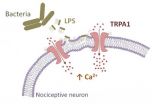(Press-News.org) PASADENA, CALIF., Feb. 10, 2014 — A screening program for abdominal aortic aneurysms, integrated into an electronic health record, dramatically reduced the number of unscreened at-risk men by more than 50 percent within 15 months, according to a Kaiser Permanente study published today in the Journal of Vascular Surgery. An abdominal aortic aneurysm is a balloon-like bulge in the aorta, which – if ruptured – can result in death. It is estimated that more than one million Americans are living with undiagnosed AAA, according to the Society for Vascular Surgery.
Since 2005, the U.S. Preventive Services Task Force and the American Heart Association have recommended screening in men aged 65 to 75 years with any history of smoking. Researchers examined the EHRs of 68,164 men who met these initial screening criteria. The researchers created an alert in the EHR to signal the providers that the patient should be screened for AAA, and then followed these men from March 2012 to June 2013. The alerts led to a system-wide reduction of unscreened patients from 51.74 percent to 20.26 percent.
"Because abdominal aortic aneurysms are generally asymptomatic before they burst, most of the patients who have a rupture didn't even know that they had an aneurysm," said Robert J. Hye, MD, study lead author and chief of vascular surgery, Kaiser Permanente San Diego Medical Center. "That makes screening for AAA all the more vital and important."
More than 50 percent of ruptured AAAs result in death, according to the American Heart Association. Approximately 10,000 Americans die as a result of a ruptured of AAA each year, according to the Centers for Disease Control and Prevention.
"Because of the distinctive nature of Kaiser Permanente's health care system with its integrated network of practitioners and physicians, it is uniquely suited to perform these types of preventive health measures like aneurysm screening, colon cancer screening, and others," said Dr. Hye. "This type of program would be very hard to implement in a non-integrated system because their practitioners don't have universal EHRs to help them monitor their patients."
Kaiser Permanente has published numerous studies about the benefits of Kaiser Permanente HealthConnect®, the EHR it launched in 2004. A study published in the Journal of the American Medical Informatics Association in October 2013 found that using EHRs to automate reporting of quality measures reduces reporting time required for one measure set alone by about 50 percent. Another study also published that month in the Journal of the American Medical Association found that the use of EHRs in clinical settings was associated with a decrease in emergency room visits and hospitalizations for patients with diabetes.
Securely connecting 9.1 million people, 618 medical offices, and 38 hospitals, Kaiser Permanente HealthConnect is the largest and most advanced non-governmental electronic health record in the world. KP HealthConnect links patients with their health care teams, their personal health information and the latest medical knowledge. It also connects Kaiser Permanente's researchers to one of the most extensive collections of longitudinal medical data available, facilitating studies and important medical discoveries that shape the future of health and care delivery for patients and the medical community.
INFORMATION:
Other authors on the study include Andrea E. Smith, MSN, RN, PHN, Regional Outpatient Safety Net, Kaiser Permanente Southern California, Pasadena; Gary H. Wong, MD, MPH, Department of Population Care Management, Kaiser Permanente Southern California, Fontana, Calif.; Southida S. Vansomphone, PharmD, Department of Pharmacy Analytical Services, Kaiser Permanente Southern California, Downey, Calif.; Ronald D. Scott, MD, Department of Lipidology and Family Medicine, Kaiser Permanente Southern California, West Los Angeles; and Michael H. Kanter, MD, Department of Quality and Clinical Analysis, Administration, Kaiser Permanente Southern California, Pasadena.
About the Kaiser Permanente Department of Research & Evaluation
The Department of Research & Evaluation conducts high-quality, innovative research into disease etiology, prevention, treatment and care delivery. Investigators conduct epidemiology, health sciences and behavioral research as well as clinical trials. Areas of interest include diabetes and obesity, cancer, HIV/AIDS, cardiovascular disease, aging and cognition, pregnancy outcomes, women's and children's health, quality and safety, and pharmacoepidemiology. Located in Pasadena, Calif., the department focuses on translating research to practice quickly to benefit the health and lives of Kaiser Permanente Southern California members and the general population. Visit kp.org/research.
About Kaiser Permanente
Kaiser Permanente is committed to helping shape the future of health care. We are recognized as one of America's leading health care providers and not-for-profit health plans. Founded in 1945, our mission is to provide high-quality, affordable health care services and to improve the health of our members and the communities we serve. We currently serve 9.1 million members in eight states and the District of Columbia. Care for members and patients is focused on their total health and guided by their personal physicians, specialists and team of caregivers. Our expert and caring medical teams are empowered and supported by industry-leading technology advances and tools for health promotion, disease prevention, state-of-the-art care delivery and world-class chronic disease management. Kaiser Permanente is dedicated to care innovations, clinical research, health education and the support of community health. For more information, go to kp.org/share.
For more information:
Cyrus Hedayati, chedayati@golinharris.com, 415-318-4377
Sandra Hernandez-Millett, sandra.d.hernandez-millett@kp.org, 626-405-5384
EHR-based screening program for AAA cuts the number of at-risk men by more than half
2014-02-10
ELSE PRESS RELEASES FROM THIS DATE:
Is height important in matters of the heart? New study says yes
2014-02-10
Is height important in matters of the heart? According to new research from Rice University and the University of North Texas, the height of a potential partner matters more to women than men, and mostly for femininity and protection.
The study, "Does Height Matter? An Examination of Height Preferences in Romantic Coupling," was conducted in two parts. Part one, which used data from the Yahoo! personal dating advertisements of 455 males (average height of 5 feet 8 inches and average age of 36 years) and 470 females (average height of 5 feet 4 inches and average age of ...
Keep romance alive with double dates
2014-02-10
Austin – February 10, 2014 – Going on a double date may be more effective at reigniting passion in your own relationship than the classic candlelit dinner for two. According to new research, striking up a friendship with another couple in which you discuss personal details of your life will bring you closer to your own partner.
"Passionate love is one of the first dimensions of love to decrease in couples over time as the newness of a relationship begins to wane," says Keith Welker, a doctoral student at Wayne State University. "Relationships have widely been thought ...
Study suggests ways to improve common furniture fire test
2014-02-10
The bench-scale test widely used to evaluate whether a burning cigarette will ignite upholstered furniture may underestimate the tendency of component materials to smolder when these materials are used in sofas and chairs supported by springs or cloth, National Institute of Standards and Technology (NIST) and American University researchers report in a new study.*
The study comes as regulations and methods for evaluating the likelihood that soft-furniture materials will ignite are undergoing scrutiny. In November 2013, California removed an open-flame test from its furniture ...
New pain target for bacterial infections
2014-02-10
Components in the outer wall of bacteria directly activate pain sensors, triggering immediate pain and inflammatory responses. This finding by a multinational team of researchers led by Professor Karel Talavera (KU Leuven, Belgium) and Professor Félix Viana (Institute of Neuroscience, Spain) sheds new light on pain associated with bacterial infections and reveals a new target for drugs designed to treat them.
Bacterial infections are a global health problem and their treatment remains a major challenge to modern medicine. Infections of Gram-negative bacteria, in particular, ...
Mechanism elucidated: How smell perception influences food intake
2014-02-10
In animals, as in humans, hunger mechanisms are known to stimulate food intake. Hunger triggers a set of mechanisms that encourage feeding, for example by increasing sensory perceptions such as the sense of smell. The researchers have now succeeded in revealing what links hunger and increased smell perception in the brain, and the resulting urge to eat.
The researchers have discovered how this mechanism is initiated in the endocannabinoid system in mice. This system interconnects receptors located in the brain and involved in different sensations such as euphoria, anxiety, ...
University clinical pharmacologist researching chronic lead intoxication in goats
2014-02-10
MANHATTAN, Kan. -- The Nile is a river in Egypt. Sometimes that river is polluted with industrial waste, such as lead, which can cause detrimental effects on local sheep and goats via the water supply.
Kansas State University's Ronette Gehring is an associate professor of clinical pharmacology in the of anatomy and physiology department of the university's College of Veterinary Medicine. She has joined a team of researchers from Egypt, Jordan and the United States in evaluating the effect of chronic lead intoxication in goats. In December 2013, the researchers published ...
Report calls for abolition of fixed retirement age
2014-02-10
A report led by a professor at the University of Southampton recommends the worldwide removal of the fixed or default retirement age (DRA).
Professor Yehuda Baruch from the Southampton Management School, in collaboration with Dr Susan Sayce from the University of East Anglia and Professor Andros Gregoriou from the University of Hull, has found that, on a global scale, current pension systems are unsustainable.
Professor Baruch comments: "We have a global problem with funding pensions, which assume people will retire around their mid-60s. Young people are tending to ...
Study finds 3-fold increase in pregnancy among young girls with mental illness
2014-02-10
TORONTO, February 10, 2014 – Young girls with mental illness are three times more likely to become teenage parents than those without a major mental illness, according to a first-of-its-kind study by researchers at the Institute for Clinical Evaluative Sciences (ICES) and Women's College Hospital.
The study, published today in the journal Pediatrics, is the first to examine trends in fertility rates among girls with mental illness.
"Research tells us that young girls are at high risk of pregnancy complications, including preterm birth, poor fetal growth and postpartum ...
Drifting herbicides produce uncertain effects
2014-02-10
Farmers should take extra precautions so drifting herbicides do not create unintended consequences on neighboring fields and farms, according to agricultural researchers.
The researchers found a range of effects -- positive, neutral and negative -- when they sprayed the herbicide dicamba on old fields -- ones that are no longer used for cultivation -- and on field edges, according to J. Franklin Egan, research ecologist, USDA-Agricultural Research Service. He said the effects should be similar for a related compound, 2,4-D.
"The general consensus is that the effects ...
Young, unvaccinated adults account for severest flu cases
2014-02-10
DURHAM, N.C. – A snapshot of patients who required care at Duke University Hospital during this year's flu season shows that those who had not been vaccinated had severe cases and needed the most intensive treatment.
In an analysis of the first 55 patients treated for flu at the academic medical center from November 2013 through Jan. 8, 2014, Duke Medicine researchers found that only two of the 22 patients who required intensive care had been vaccinated prior to getting sick.
The findings were published online in Monday, Feb. 10, 2014, in the American Journal of Respiratory ...




